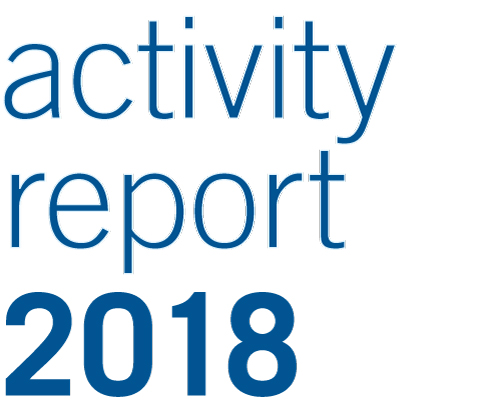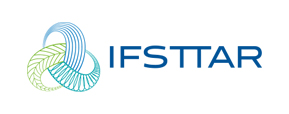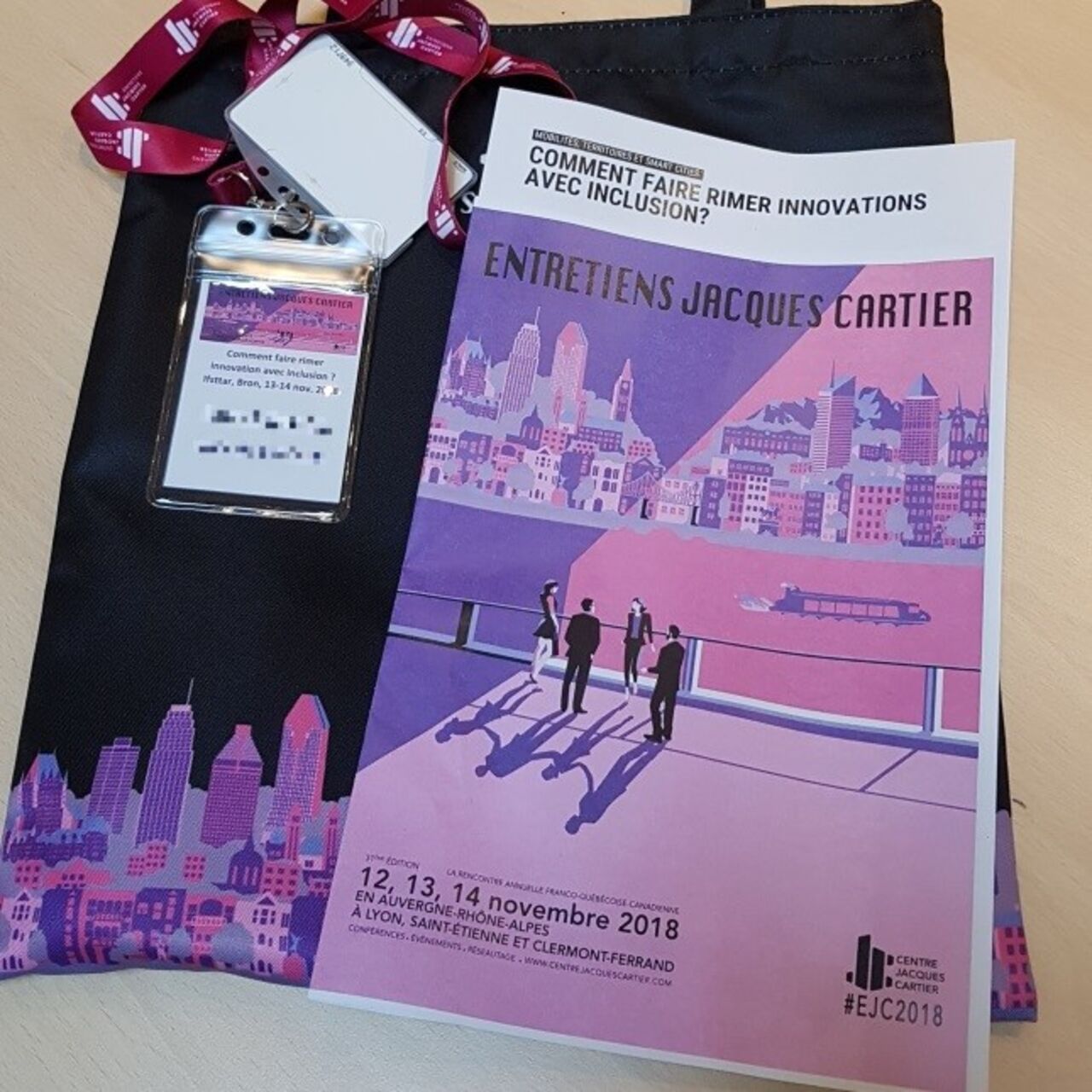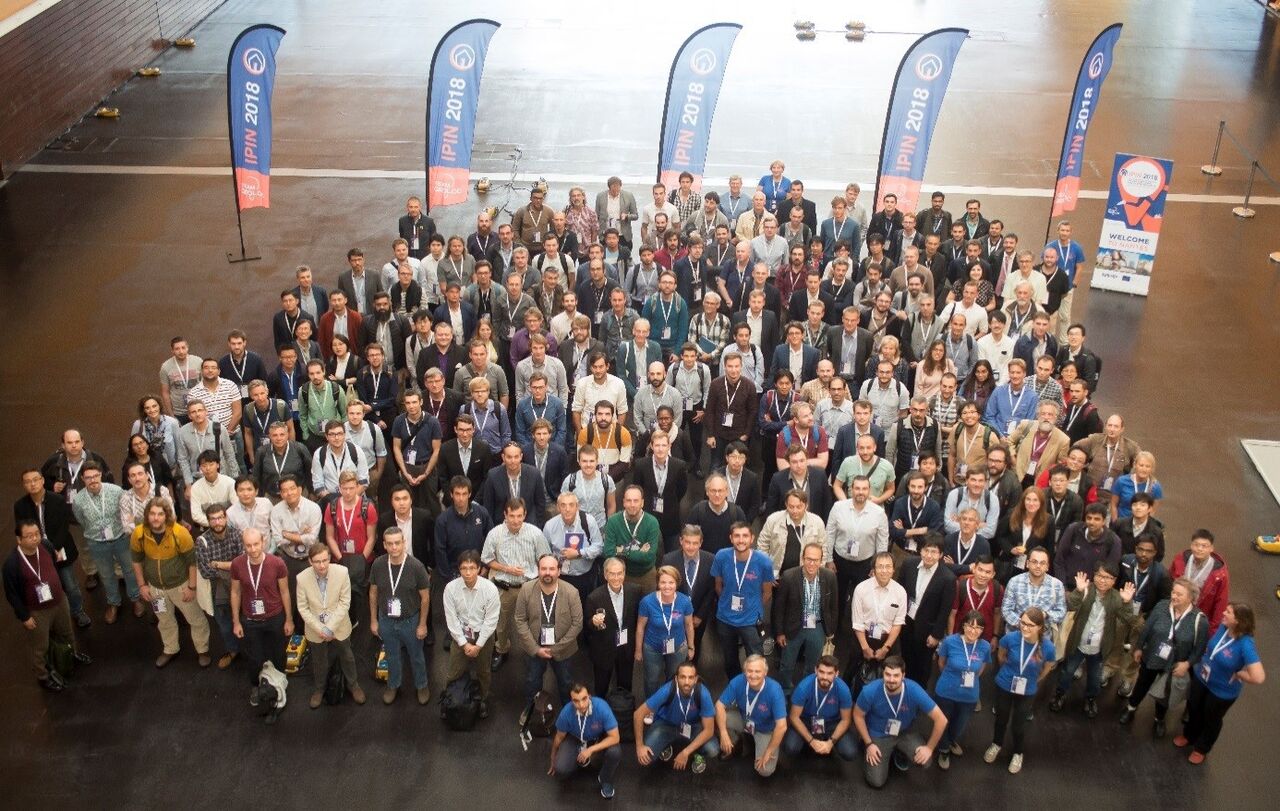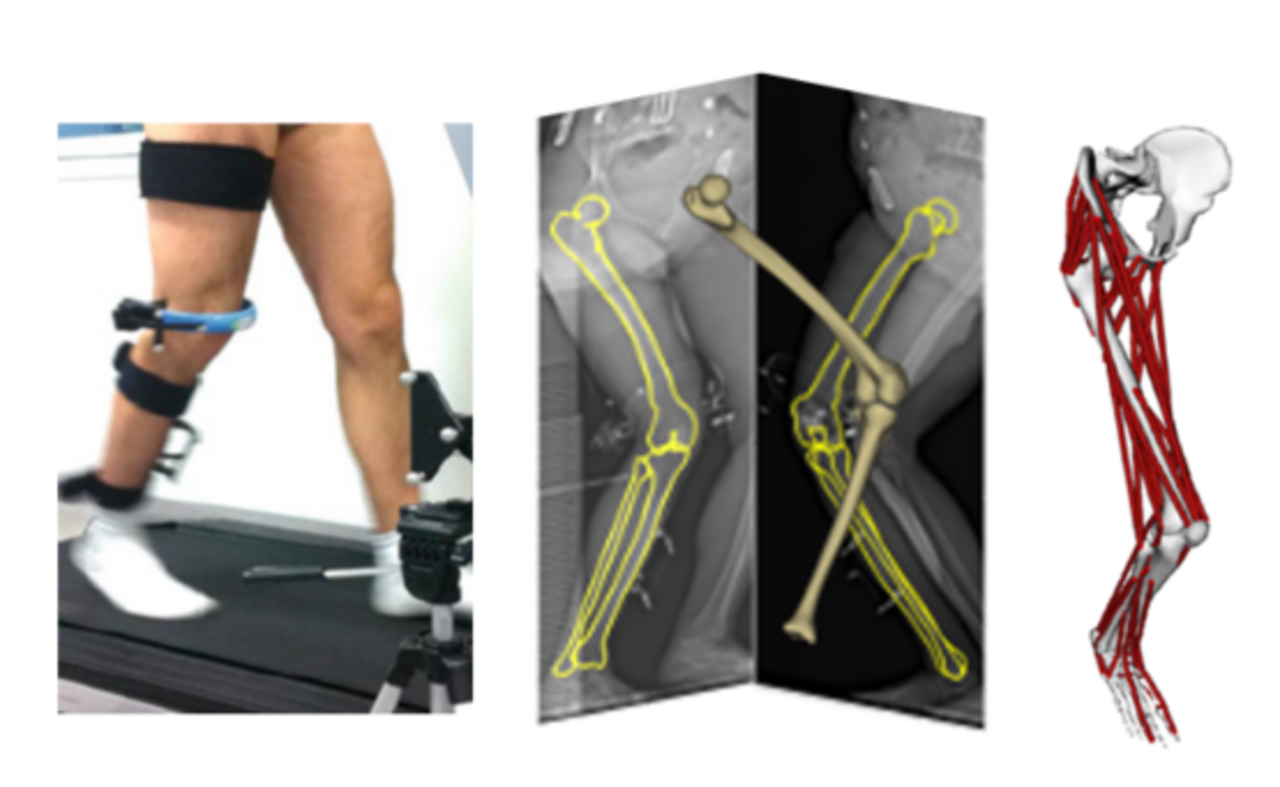International activities
Some of IFSTTAR's activities extend beyond our borders. In 2018, the Institution actively participated in the organisation of international events (symposia and conferences mainly aimed at promoting stress-free mobility) and encouraged the development of international partnerships between research laboratories carrying out specialized activities that address major societal challenges, such as preserving the mobility of pedestrians over the age of 65. These actions help to enhance the institution's profile.
Mobility, areas and smart cities: How to reconcile innovation with inclusion?
During the 2018 Jacques Cartier Meetings, a symposium was jointly organised by IFSTTAR (TS2 laboratory - LESCOT, Bron) and Laval University (CIRRIS) in Quebec. Organised on 13 and 14 November 2018 at IFSTTAR's site in Bron, its aim was to provide a space in which to think about innovation and inclusion issues. Indeed, in the face of the proliferation of mobility-related innovations, with the emergence of new modes of transport (autonomous vehicles, new personal or public urban transport modes) as well as new services and smartphone applications, we must ask, to what extent, and how, these innovations can meet everyone’s needs, or even make it possible to include people who were hitherto restricted in their journeys. Work was presented by participants from Quebec and France in the fields of inclusion and innovation (16 presentations spread over 1 1/2 days). This conference provided opportunities for discussions between researchers, local and regional authorities and those attempting to identify ways of developing innovations for mobility that meet the needs of all, particularly the disabled and the elderly.
A special issue of the journal IET Intelligent Transport Systems has been devoted to distraction and inattention
The conference on "Driver Distraction and Inattention" organised by IFSTTAR, Safer (the Chalmers and Volvo Cars Vehicle and Traffic Safety Centre) and AARB (Australian Road Research Board) was held at the IFSTTAR Marne-la-Vallée site in January 2017. The following year, a special issue of the journal IET ITS was published to draw attention to the five best papers from the conference.
The first paper deals with attention issues related to the use of autonomous vehicles, in particular the critical transition from automatic to manual operation. The authors highlighted a variety of preventive measures to address the effects of inattention and provided several avenues of research for understanding and managing distraction and inattention. The use of smartphones is a major concern for road safety. The second paper presents new ways of measuring the impacts of smartphone use by young drivers. The results reveal not only that young people make intensive use of smartphones, but also that they may underestimate this use while driving. Human-machine interaction is also being studied to reduce potential human deficiencies due to fatigue. Using behavioural and physiological data, the authors explored how driver participation in a conversation with a personal digital assistant (PDA) can increase wakefulness and improve driving performance. A final paper focuses on touch screens which can cause distraction. The authors highlight the importance of designing touch screens that are integrated with the vehicle.
The 2020 edition of the conference is scheduled to be held in Lyon. This event will be an opportunity to make the Transpolis testing facility known internationally to researchers in the humanities and social sciences and to foreign manufacturers in order to encourage the setting-up of European and even international projects.
IPIN2018 International experts in the field of indoor geolocation met for the 9th international conference on Indoor Positioning and Indoor Navigation.
Organised by the Géoloc laboratory and held between the 24 and 27 September in Nantes, IPIN brought together more than 300 researchers and manufacturers from 37 countries who are experts in “ubiquitous geolocation technologies.” They presented the work they have conducted to support new forms of intelligent and connected mobility and the sharing of indoor location data for the Internet of Things. The four-day event was punctuated by two masterclasses, 97 oral research presentations, 33 posters, and 4 keynotes given by international experts. The American professor Andrei Shkel explained how a glass of wine inspired the invention of a blown glass gyrometer. J. Redelkiewicz, from the European GNSS agency, detailed the technological innovations required to support the automation of transport modes: ubiquitous trace calculation, better accuracy, more data exchange and increased geolocation security.
A geolocation competition was organised to coincide with the conference. Fifteen teams of researchers and manufacturers took part with the aim of geolocating themselves as precisely as possible and in real time by following a path marked by 180 targets scattered throughout the 9,000 m² of the Nantes Atlantis shopping centre.
In particular, the conference strengthened IFSTTAR's national and international profile in the field of indoor geolocation. Participants in the next edition will meet in Pisa (Italy) in September 2019.
Forming international partnerships to better understand osteoarthritis and maintain independent mobilit
Osteoarthritis is a disease of the cartilage that affects the knees of about one in four people once they reach the age of 65. Most of these people can no longer carry out daily activities such as walking or climbing stairs, which severely limits their independent mobility. A long-standing partnership between the LBMC (IFSTTAR - Université Lyon 1) and the LIO (ETS - CRCHUM), involving specialists in biomechanics and surgeons, aims to better understand the biomechanical factors responsible for the progression of this disease and improve diagnosis and patient care.
Several studies have been carried out as part of jointly supervised PhDs and Master’s degrees, and researcher mobility funded by the Jacques Cartier Centre, the Auvergne-Rhône-Alpes region and IFSTTAR's DAEI. The research approach is based on an analysis of movement performed with an innovative device coupled with bi-plane imaging and validated musculoskeletal modelling. This work has shown relationships between knee anatomy, joint movement and cartilage loading. Ongoing work is studying different osteoarthritis treatments that can maintain or restore mobility (orthopaedic prostheses and knee replacements).
Movement analysis and bi-plane imaging are clinical methods used in a number of hospitals, in Lyon and Montreal for example. Musculoskeletal modelling is becoming more common, but its application is still limited to research.
